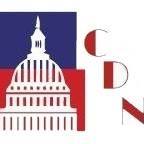



China is stalling the exports of rare earth magnets, despite promising earlier this month to ease restrictions under a trade deal with the Trump administration, The Wall Street Journal reported Thursday.
The agreement, struck during a recent meeting in London to revive a trade truce initially brokered in Geneva this May, included a pledge from Chinese authorities to ease export controls on rare earth elements and lower tariffs on U.S. goods to 10%. However, Western manufacturers say they are still struggling to secure adequate supplies, according to the WSJ.
“Yes, the export restrictions have been paused on paper. However, ground reality is completely different,” Neha Mukherjee, a rare-earths analyst at Benchmark Mineral Intelligence, told the WSJ, describing the licensing process to the WSJ as a “bureaucratic drag.”
Between 2020 and 2023, China supplied roughly 70% of the U.S.’s rare earth metal imports, according to a January report from the U.S. Geological Survey. The country holds an estimated 44 million tons of rare earth reserves, compared to just 1.9 million tons held by the U.S.
Beijing initially imposed new export controls on several rare earth elements used in weapon systems, cars, and other advanced technologies in April, following President Donald Trump’s “Liberation Day” tariffs on Chinese goods. Despite the recent agreement, concerns remain among U.S. businesses and industry leaders who warn that China’s delays are disrupting supply chains, according to the WSJ.
Some companies are reporting “hand-to-mouth” operations and resorting to costly airfreight shipments to avoid factory shutdowns, while others are scrambling to redesign products around less powerful magnets, the outlet reported. Ford, for instance, temporarily halted production of its Explorer SUV in Chicago due to the shortage.
China’s Ministry of Commerce said Thursday that it is accelerating the review of export license applications and has approved “a certain number,” according to the WSJ. Still, many companies say Chinese authorities are dragging their feet.
License applications now take well over a month to process, and some are being rejected altogether, especially if applicants skip questions designed to elicit confidential details, the WSJ reported. Firms say they are being asked to reveal customer identities and even the designs of components their magnets will be used in, raising red flags given China’s history of intellectual property theft.
While many companies are complying with the information requests, magnet companies closely linked to the Chinese government are receiving export licenses more quickly than smaller private ones, according to the WSJ.
“The Geneva and London talks made solid progress towards establishing reciprocal trade relations with China. The Administration continues to monitor China’s compliance with the agreement reached at Geneva,” a White House official told the Daily Caller News Foundation.
Content created by The Daily Caller News Foundation is available without charge to any eligible news publisher that can provide a large audience. For licensing opportunities of our original content, please contact licensing@dailycallernewsfoundation.org
China rare earth minerals